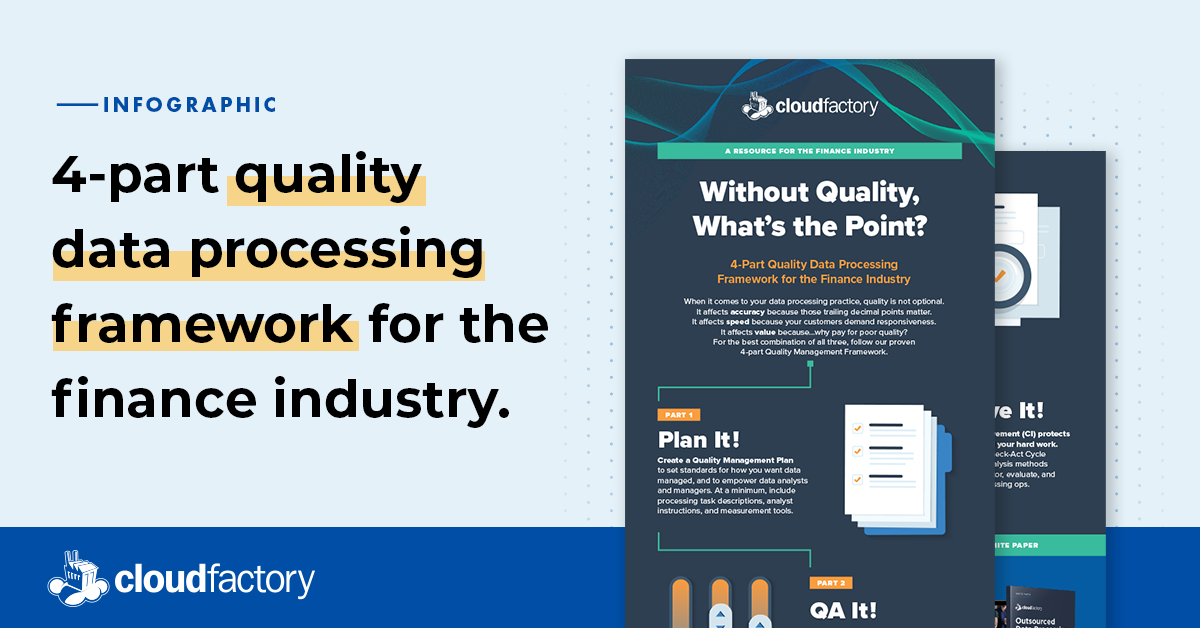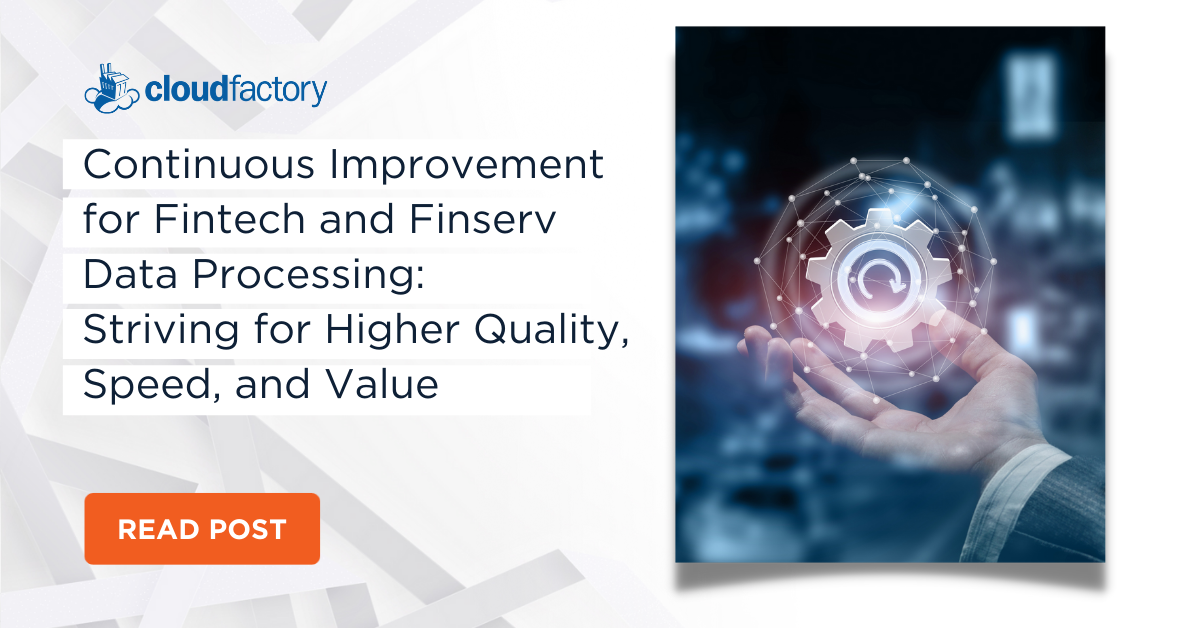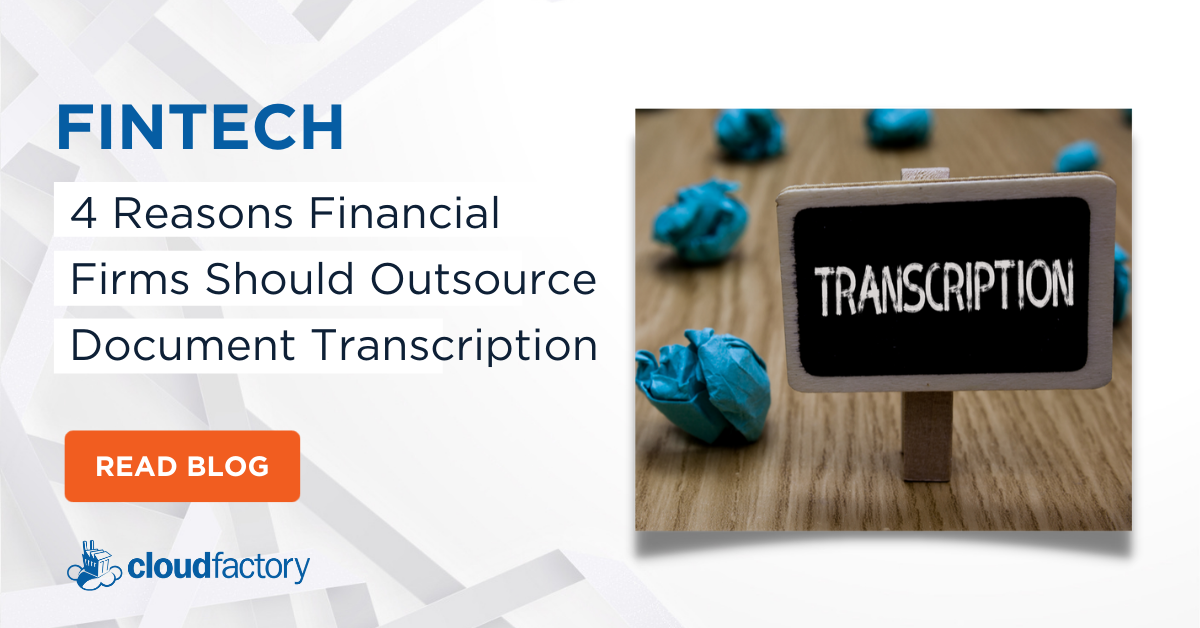Get the three top takeaways from CloudFactory’s Improve Your Finance AI Strategy with Humans in the Loop webinar.
Finance and Insurance

Financial firms are often wary of outsourcing data processing, but security measures exist to mitigate risk for data-intensive projects.

See how insurance carriers and insurtechs are reducing risk, optimizing sales, and improving claims with AI, automation, and machine learning.

Insurers are using AI to lower customer acquisition costs, identify new opportunities, and enable sales with personalized coaching and tools.

AI is changing claims processing, improving the claims experience for policyholders and boosting retention for insurers. It starts with quality data.

Companies in the insurance industry are tapping the power of quality data to transform underwriting, give time back to underwriters, & grow the business.

Outsourcing your data processing doesn't mean skimping on quality. We deliver stellar outputs, fast, for finance industry leaders—and this framework is how we do it.

Continuous improvement methods yield high accuracy, high speed, and high value. Here's how CloudFactory practices CI for clients in the finance industry.

Learn how CloudFactory practices quality control for our clients in the fintech and finserv spaces, and how quality control differs from quality assurance.

Outsourcing your fintech data processing work doesn't mean you have to sacrifice quality, i.e., as long as your partner uses sound QA workflow models.

In a data-heavy sector like finance, scaling routine operations like document transcription can be difficult, but outsourcing can help in a variety of ways

From spotting trends in financial markets to empowering better client experiences, natural language processing (NLP) is transforming the finance sector.

From fraud detection to automated loan approvals, AI is transforming the world of fintech with smoother client experiences and reduced financial risk.

Accurate data entry is the foundation of strong financial practices. It helps finance teams maintain complete records and expedite critical transactions.

Data entry is an essential part of the digital transformation process for legal firms seeking to speed discovery and provide better client experiences.


